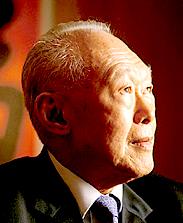
A few thoughts on torture:
1. I'm agin' it, on the whole.
2. But those who think that the argument based on pragmatism--"it doesn't work because you'll confess to anything under torture--" is a good one are deceiving themselves. It's a false argument because if it were true that torture was useless in extracting information, the practice would long ago have been discontinued. To be sure, torture to extract confessions in order to prove guilt is largely useless; innocent people will confess to anything under torture. However, when the guilt is already proved and the torturers already know that their victim has information that they need, this argument against torture based upon pragmatism fails. Why shouldn't we use torture on people who are just defying us, teasing us with the fact that they have information we need and can't get from them? Moreover, the knowledge that their information could be swiftly verified, and if proven false the torture reapplied, would "encourage" them to tell the truth. An example of this was when Khalid Sheikh Mohammed, a key leader in Al Qaeda, was captured and sent to the prison camp at Guantanamo Bay. The American interrogators knew that he had information they needed and when he mocked them and refused to give them any, they proceeded to waterboard him. He cracked after a minute and a half and gave them valuable information that proved to be accurate and useful. So torture works, when used skillfully and in the proper situations.
3. This being the case, other arguments must be found; happily, these are readily available and I need not go over them here: the inherent dignity of the human person, the dehumanizing effect upon the torturer, the chance of retribution in kind by the enemy (although when the enemy already tortures as a matter of course this argument fails along with the pragmatic one), and so on.
4. I am of the opinion that the only act that the American government has committed during the war on terror which can be considered torture is waterboarding, which they used three times. They ought not to have used it at those times, but the use of a fairly mild form of torture three times does not a war crime make.
5. I am in agreement with Al Mohler, here, that during a "ticking time bomb" situation torture is allowable; however, and also like Mohler, I believe that such situations occur in truth very rarely and in fancy very often. As such, Mohler is correct in saying that the law should not sanction torture as a policy, lest it give paranoid, foolish or cruel men license to use torture when it is unnecessary. Torture should always be done at the very last moment--and having a law against it with severe penalties in place would ensure that should such a moment arise the decision to torture would be made with the utmost seriousness. I would also expect the law to be merciful on such occasions to the torturers.
6. One of the main reasons why I supported John McCain early on in the primaries (in spirit, because I have reasons for not voting American) was because of his stance against torture. The above note is also in accord with his position.
7. Has anyone ever noticed that torture is used in the Lord of the Rings by the good guys? Behold the following excerpt:
I endured him as long as I could, but the truth was desperately important, and in the end I had to be harsh. I put the fear of fire on him, and wrung the true story out of him, bit by bit, together with much snivelling and snarling.This was more psychological torture than anything else, but waterboarding mainly relies upon fear as its weapon as well. And do you know who said the above quote? Gandalf the Grey.
8. Given that there is no man alive with the wisdom and moral clarity of Gandalf, the above example should not be taken as an endorsement of torture.
So there are a couple points on torture.
Meanwhile, Peter Eddy has explained why he distrusts McCain's pro-life credentials. I believe that Pete is misinformed about McCain's record on judges, thus here, here, and here. McCain's only potential problem with conservative justices is the McCain-Feingold act concerning campaign finance reform, as I understand it. And he has said that he will not consider this difference to be a litmus test. The Gang of 14 business was one of which I approved, given the political situation at the time and the necessity of preserving the Senate minority's power--particularly as it may well come in handy for the Republicans under an Obama administration. So cool it, Pete. But then again, I am a member of an officially pro-choice party (and likely, alas, to remain so for the forseeable future), so obviously I am not, like Pete, a one-issue voter.




